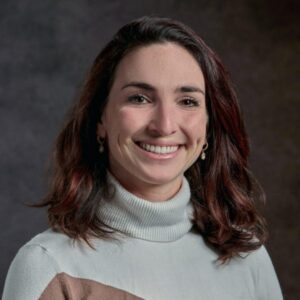Humanists Making a Difference: Celebrant & Chaplain Elisa Rosoff
 Elisa Rosoff
Elisa Rosoff Welcome to TheHumanist.com’s new regular series highlighting humanist professionals and the communities they serve. Learn more about the work of celebrants, chaplains, invocators, and lay leaders and find an endorsed humanist professional near you at The Humanist Society.
What motivated you to become a celebrant?
I am a clinical, professional chaplain endorsed by the Humanist Society with Board Certification through APC/BCCI, Inc. In this role, I am often a consultant for people planning to demarcate major life transitions. Naturally, I facilitate various programs and ceremonies, however a lot of the celebrant work I do as a prison chaplain happens behind-the-scenes assisting people with discernment about next steps in their lives.
My goal, as a Humanist-endorsed Clinical Professional Chaplain and Celebrant in the prison and prison reentry sectors, is to raise awareness about the realities of incarceration in this country and the many barriers people face upon release as they reenter their communities. People transitioning from incarceration have paid their debt to society. They can become successful, productive citizens with compassionate, holistic support that gives them the power to play the lead role in the story of their lives. In my role as a humanist chaplain and celebrant, I offer space for justice-involved people to have their spiritual, religious, and/or emotional care needs addressed. In both settings I work in, I implement trauma-informed, evidence-based care
Why did you seek endorsement with The Humanist Society?
My vocation is professionally chaplaincy. I am a humanist by nature and therefore, when it came time for board certification, there was no question about who my endorsement should come from! The “Ten Commitments” guide me in all that I do both as a person in society and professionally in my work spheres.
Is there an event you officiated that stands out as rewarding and significant (i.e. unusual wedding ceremony, touching celebration of life, impactful exchange)?
This past year, I took the lead from trans and nonbinary prison residents to form a Gender, Education, Spirituality Support group that meets regularly and has its own spot on the monthly prison chaplaincy services calendar. At the end of our inaugural semester meeting as a group, one of the group leaders requested my guidance and celebrant skills to preside at his Renaming Ceremony. He was able to invite friends and supportive staff members to gather for this special event. Given his Christian background and love for embracing diversity and transformation, I created a program that incorporated humanist values while utilizing a traditional liturgical framework. Years of joy were shed and others in the community were inspired to step into more open only using their chosen names.
Have there been challenging moments in doing this work?
Operating within a prison structure chain-of-command requires extra steps and time, however, being patient is worth it. I have been fortunate to work with supportive staff, namely the Associate Warden of Programs, who signed off on the formation of this support group and the Renaming Ceremony.
How does your nonreligious worldview impact your work?
My humanist values encourage me to view my chaplaincy work as a life passion and calling, and not merely a job. I can recognize that though I may not personally believe what others believe, my humanist values ensure that I have deep respect for others and what brings them strength in times of transition. My extensive formal education and lived experience have connected me to so many unique people with unique stories, beliefs, and philosophies. As a professional chaplain, it is my responsibility and privilege to walk alongside them and suspend my judgments in order to provide quality care and attention to their emotional care needs.
